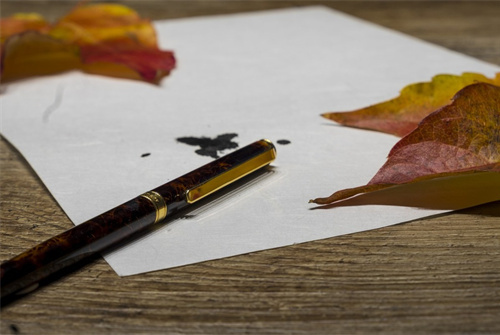在诺贝尔文学奖授奖仪式上的演说塞尔玛.拉格洛芙阅读答案
额,只有英文版,我从诺贝尔奖官网找到的Banquet SpeechSelma Lagerlöf"s speech at the Nobel Banquet at Grand Hôtel, Stockholm, December 10, 1909(Translation)A few days ago I was sitting in the train, bound for Stockholm. It was early evening; there was little light in my compartment and none at all outside. My fellow passengers were dozing in their respective corners, and I was very quiet, listening to the rattling of the train.And then I began to think of all the other times I had come up to Stockholm. It had usually been to do something difficult - to pass examinations or to find a publisher for my manuscript. And now I was coming to receive the Prize in Literature. That, too, I thought would be difficult.All through this autumn I had lived at my old home in Värmland in complete solitude, and now I should have to step forward in the presence of so many people. I had become shy of life"s bustle in my solitary retreat and was apprehensive at the thought of facing the world.Deep within me, however, was a wondrous joy at receiving this Prize, and I tried to dispel my anxiety by thinking of those who would rejoice at my good fortune. There were my good friends, my brothers and sisters and, first and foremost, my old mother who, sitting back home, was happy to have lived to see this day.But then I thought of my father and felt a deep sorrow that he should no longer be alive, and that I could not go to him and tell him that I had been awarded the Nobel Prize. I knew that no one would have been happier than he to hear this. Never have I met anyone with his love and respect for the written word and its creators, and I wished that he could have known that theSwedish Academy had bestowed on me this great Prize. Yes, it was a deep sorrow to me that I could not tell him.Anyone who has ever sat in a train as it rushes through a dark night will know that sometimes there are long minutes when the coaches slide smoothly along without so much as a shudder. All rustle and bustle cease and the sound of the wheels becomes a soothing, peaceful melody. The coaches no longer seem to run on rails and sleepers but glide into space. Well, that is how it was as I sat there and thought how much I should like to see my old father again. So light and soundless was the movement of the train that I could hardly imagine I was on this earth. And so I began to daydream: «Just think, if I were going to meet Father in Paradise! I seem to have heard of such things happening to other people - why, then, not to myself?» The train went gliding on but it had a long way to go yet, and my thoughts raced ahead of it. Father will certainly be sitting in a rocking chair on a veranda, with a garden full of sunshine and flowers and birds in front of him. He will be reading Fritjofs saga, of course, but when he sees me he will put down his book, push his spectacles high up on his forehead, and get up and walk toward me. He will say, «Good day, my daughter, I am very glad to see you», or «Why, you are here, and how are you, my child», just as he always used to do.He will settle again in his rocking chair and only then begin to wonder why I have come to see him. «You are sure there is nothing amiss?» he will ask suddenly. «No, Father, all is well», I will reply. But then, just as I am about to break my news to him, I will decide to keep it back just a while longer and try the indirect approach. «I have come to ask you for advice, Father,» I will say, «for I am very heavily in debt.»«I am afraid you will not get much help from me in this matter», Father will reply. «One may well say of this place that, like the old estates in our Värmland, it has everything except money.»«Ah, but it is not money that I owe, Father.» «But that"s even worse», Father will say. «Begin right at the beginning, daughter.»«It is not too much to ask that you should help, Father, for it was all your fault right from the beginning. Do you remember how you used to play the piano and sing Bellman"s songs to us children and how, at least twice every winter, you would let us read Tegnér and Runeberg and Andersen? It was then that I first fell into debt. Father, how shall I ever repay them for teaching me to love fairy tales and sagas of heroes, the land we live in and all of our human life, in all its wretchedness and glory?»Father will straighten up in his rocking chair and a wonderful look will come into his eyes. «I am glad that I got you into this debt», he will say. «Yes, you may be right, Father, but then remember that that is not all of it. Think how many creditors I have. Think of those poor, homeless vagabonds who used to travel up and down Värmland in your youth, playing the fool and singing all those songs. What do I not owe to them, to their mischief and mad pranks! And the old men and women sitting in their small grey cottages as one came out of the forest, telling me wonderful stories of water-sprites and trolls and enchanted maidens lured into the mountains. It was they who taught me that there is poetry in hard rocks and black forests. And think, Father, of all those pale, hollow-cheeked monks and nuns in their dark cloisters, the visions they saw and the voices they heard. I have borrowed from their treasure of legends. And our own peasants who went to Jerusalem - do I owe them nothing for giving me such glorious deeds to write about? And I am in debt not only to people; there is the whole of nature as well. The animals that walk the earth, the birds in the skies, the trees and flowers, they have all told me some of their secrets.»Father will smile and nod his head and look not at all worried. «But don"t you understand, Father, that I carry a great burden of debt?» I will say, and look more and more serious. «No one on earth knows how I can repay it, but I thought that you, in Heaven, would know.» «We do», Father will say and be as carefree and relaxed as he used to be. «Never fear, child, there is a remedy for your trouble.»«Yes, Father, but that"s not all. I am also heavily in debt to those who have formed and moulded our language into the good instrument that it is, and taught me to use it. And, then, am I not in debt to those who have written in prose and in verse before my time, who have turned writing into art, the torchbearers, the pathfinders? The great Norwegians, the great Russians who wrote when I was a child, do I not owe them a thousand debts? Has it not been given to me to live in an age in which my own country"s literature has reached its highest peak, to behold the marble emperors of Rydberg, the world of Snoilsky"s poetry, Strindberg"s cliffs, Geijerstam"s countryfolk, the modern men of Anne-Charlotte Edgren and Ernst Ahlgren,Heidenstam"s Orient? Sophie Elkan, who has brought history to life, Fröding and his tales of Värmland"s plains, Levertin"s legends, Hallström"s Thanatos, and Karlfeldt"s Dalekarlian sketches, and much else that was young and new, all that nourished my fantasy, drove me on to compete, and made the dreams bear fruit - do I not owe them anything?»«Yes, yes», Father will say. «You are right, yours is a heavy debt but, never fear, we will find a way.»«I don"t think, Father, that you really understand how hard it is for me. You don"t realize that I am also in debt to my readers. I owe them so much - from the old King and his youngest son, who sent me on my apprentice"s wanderings through the South, to the small schoolchildren who scribbled a letter of thanks for Nils Holgersson. What would have become of me if no one had wanted to read my books? And don"t forget all those who have written of me. Remember the famous Danish critic who, with a few words, won me friends all over Denmark! And he who could mix gall and ambrosia in a more masterly fashion than anyone in Sweden had ever done before his time. Now he is dead. Think of all those in foreign lands who have worked for me. I owe them gratitude, Father, both for their praise and for their censure.»«Yes, yes», Father will say, and I shall see him look a little less calm. Surely, he will begin to understand that it will not be easy to help me.«Remember all who have helped me, Father!» I shall say. «Think of my faithful friend, Esselde, who tried to open doors for me when no one dared to believe in me. Think of others who have cared for and protected my work! Think of my good friend and travelling companion, who not only took me south and showed me all the glories of art but made life itself happier and lighter for me. All the love that has come to me, the honours, the distinctions! Do you not understand now that I had to come to you to ask how such debts can be paid?»Father has lowered his head and does not look so hopeful any more.«I agree, Daughter, it is not going to be easy to find help for you but, surely, there is nothing more you owe anyone?»«Yes, Father, I have found it difficult enough to bear all that I owed before, but my biggest debt has not yet come. That is why I had to come to you for advice.»I cannot understand how you could owe still more», Father will say. «Oh, yes », I will reply, and then I will tell him all about this.«I just cannot believe the Academy... », Father will say but, looking at me and seeing my face, he will know it is all true. And, then, every wrinkle in his face will tremble and tears will come into his eyes.«What am I to say to those who put my name up for the Prize and to those who have made the decision - think, Father, it is not only honour and money they are bestowing on me. They have shown that they have trust enough in me to single me out before the whole world. How shall I repay this debt?»Father will sit and still no words will come as he thinks. Then, drying tears of joy from his eyes, he will bang down his fist on the arm of the rocking chair and say, «I will not rack my brains about problems that no one in Heaven or on earth can solve. I am too happy that you have been given the Nobel Prize to worry about anything!»Your Majesties, Your Royal Highnesses, Ladies and Gentlemen - having received no better answer than this to all my questions, it only remains to me to ask you to join me in the toast which I have the honour to propose to the Swedish Academy.From Nobel Lectures, Literature 1901-1967, Editor Horst Frenz, Elsevier Publishing Company, Amsterdam, 1969
在诺贝尔文学奖授奖仪式上的演说塞尔玛.拉格洛芙阅读答案
我来回答这个问题。
列夫·托尔斯泰没有获得过诺贝奖。
他应该得奖,但是瑞典皇家科学院没有评选他。
诺贝尔文学奖从1901年开始颁发。
而老托尔斯泰死于1910年11月20日。
他有足足十年时间完全够格获得诺贝尔文学奖。
托尔斯泰没有获奖,是因为当时的评委认为他的小说不足以获奖。
那么,评委们认为什么样的人胜过托尔斯泰呢
请看1901年到1910年的诺贝尔文学奖得主:1901年 苏利·普吕多姆(1839~1907)法国诗人。
1902年 特奥多尔·蒙森(1817~1903)德国历史学家1903年比昂斯滕·比昂松(1832~1910)挪威戏剧家、诗人、小说家1904年 弗雷德里克·米斯塔尔(1830~1914)法国诗人。
何塞·埃切加赖(1832~1916)西班牙戏剧家、诗人。
1905年 亨利克·显克维支(1846~1916)波兰小说家。
1906年 乔祖埃·卡尔杜齐(1835~1907)意大利诗人、文艺批评家1907年 约瑟夫·鲁德亚德·吉卜林(1865~1936)英国小说家、诗人。
1908年 鲁道尔夫·欧肯(1946~1926)德国哲学家。
1909年 西尔玛·拉格洛夫(女)(1858~1940)瑞典儿童文学作家。
代表作《骑鹅旅行记》1910年 保尔·约翰·路德维希·冯·海塞,德国作家这十个人,一百年后来看,其成就根本不能与托尔斯泰相比。
而且其中大部分今天看来都不再是世界知名的作家。
由此可见,托尔斯泰未能获奖,绝不是托尔斯泰的遗憾,而是诺贝尔文学奖的遗憾,是瑞典皇家科学院的遗憾。
事实上,在托尔斯泰生前,当时欧洲的名流曾经联名写信给瑞典皇家科学院,抗议托尔斯泰未能获奖。
《我最喜欢的一句话》演讲稿
我所喜欢的名言警句,当然不仅仅一句,它们能给我以自信和力量,还可以时刻鞭策着我,让我辨别世界上的真,善,美和假,丑,恶,激励着我前进。
其中,但丁说过的一句话:“人不能像走兽那样活着,应该追求知识和美德。
”让我一直铭记在心。
是呀,但丁说得对,身为人类,我们与其他动物的最大区别除了我们会使用劳动工具以外,就是我们还有着不同与其他动物的思想与道德伦理,所以我们提倡终生学习就是为了完善我们的知识面与道德修养。
高尔基曾经说过:“书是人类进步的阶梯,终生的伴侣,最诚挚的朋友。
”书能帮我们扩大知识面;书能解开我们心中的谜团;书能让我们写出优美的文章;书还能陶冶人的感情和气质,使人高尚……书是人类必不可少的营养品。
但丁的这句话使我受益匪浅。
记得我以前总是不爱读书,认为那是一个苦差事,又要浪费一大堆时间。
但是,自从上了一年级之后,我才发现我的“库存”早已不足,于是,我便从这时起如饥似渴地读书,也渐渐爱上了读书,每逢周末有时间,我都会到书店“充充电”,就是因为这样,所以,我的作文水平比原来写得好多啦!读书可以提高我们的阅读能力;读书可以让我们在这个充满竞争的社会上立于不败之地。
总之,爱好读书是好事,让我们都来知识的海洋里遨游吧!老师、同学们早上好!今天,我演讲的题目是《我最喜欢的一句经典名言》。
我最喜欢的一句名言是希腊著名学者亚里士多德说:“良好的开端是成功的一半。
”“良好的开端是成功的一半。
”不仅因为这句话使我增强了自信心,也使我迈出了成功的一步。
在一次班队会课上,班主任叫我们上台演讲《我最钦佩的一种行为》时。
我始终没有勇气上台演讲,直到有一个同学说要下课了,我才鼓起勇气上去。
当面对那一排排黑压压的人头和一张张熟悉的面孔时,我似乎下定了决心,于是,我结结巴巴地说了几句就下去了。
虽然没有想象中的那么完美,但是,我还是为自己的行为感到高兴,感到骄傲!心里无比的高兴,因为我已经走出了成功的一步。
在人生的道路上,挫折和挑战总是会有的,你不可能一帆风顺地度过一生。
只要你相信路是人走出来的,当你遇到困难时,你就会勇往直前。
只有你经过挫折后才会知道:挫折过后随之而来的是甘甜。
在诺贝尔文学奖授奖仪式上的演说
额,只有英文版,我从诺贝尔奖官网找到的Banquet SpeechSelma Lagerlöf"s speech at the Nobel Banquet at Grand Hôtel, Stockholm, December 10, 1909(Translation)A few days ago I was sitting in the train, bound for Stockholm. It was early evening; there was little light in my compartment and none at all outside. My fellow passengers were dozing in their respective corners, and I was very quiet, listening to the rattling of the train.And then I began to think of all the other times I had come up to Stockholm. It had usually been to do something difficult - to pass examinations or to find a publisher for my manuscript. And now I was coming to receive the Prize in Literature. That, too, I thought would be difficult.All through this autumn I had lived at my old home in Värmland in complete solitude, and now I should have to step forward in the presence of so many people. I had become shy of life"s bustle in my solitary retreat and was apprehensive at the thought of facing the world.Deep within me, however, was a wondrous joy at receiving this Prize, and I tried to dispel my anxiety by thinking of those who would rejoice at my good fortune. There were my good friends, my brothers and sisters and, first and foremost, my old mother who, sitting back home, was happy to have lived to see this day.But then I thought of my father and felt a deep sorrow that he should no longer be alive, and that I could not go to him and tell him that I had been awarded the Nobel Prize. I knew that no one would have been happier than he to hear this. Never have I met anyone with his love and respect for the written word and its creators, and I wished that he could have known that theSwedish Academy had bestowed on me this great Prize. Yes, it was a deep sorrow to me that I could not tell him.Anyone who has ever sat in a train as it rushes through a dark night will know that sometimes there are long minutes when the coaches slide smoothly along without so much as a shudder. All rustle and bustle cease and the sound of the wheels becomes a soothing, peaceful melody. The coaches no longer seem to run on rails and sleepers but glide into space. Well, that is how it was as I sat there and thought how much I should like to see my old father again. So light and soundless was the movement of the train that I could hardly imagine I was on this earth. And so I began to daydream: «Just think, if I were going to meet Father in Paradise! I seem to have heard of such things happening to other people - why, then, not to myself?» The train went gliding on but it had a long way to go yet, and my thoughts raced ahead of it. Father will certainly be sitting in a rocking chair on a veranda, with a garden full of sunshine and flowers and birds in front of him. He will be reading Fritjofs saga, of course, but when he sees me he will put down his book, push his spectacles high up on his forehead, and get up and walk toward me. He will say, «Good day, my daughter, I am very glad to see you», or «Why, you are here, and how are you, my child», just as he always used to do.He will settle again in his rocking chair and only then begin to wonder why I have come to see him. «You are sure there is nothing amiss?» he will ask suddenly. «No, Father, all is well», I will reply. But then, just as I am about to break my news to him, I will decide to keep it back just a while longer and try the indirect approach. «I have come to ask you for advice, Father,» I will say, «for I am very heavily in debt.»«I am afraid you will not get much help from me in this matter», Father will reply. «One may well say of this place that, like the old estates in our Värmland, it has everything except money.»«Ah, but it is not money that I owe, Father.» «But that"s even worse», Father will say. «Begin right at the beginning, daughter.»«It is not too much to ask that you should help, Father, for it was all your fault right from the beginning. Do you remember how you used to play the piano and sing Bellman"s songs to us children and how, at least twice every winter, you would let us read Tegnér and Runeberg and Andersen? It was then that I first fell into debt. Father, how shall I ever repay them for teaching me to love fairy tales and sagas of heroes, the land we live in and all of our human life, in all its wretchedness and glory?»Father will straighten up in his rocking chair and a wonderful look will come into his eyes. «I am glad that I got you into this debt», he will say. «Yes, you may be right, Father, but then remember that that is not all of it. Think how many creditors I have. Think of those poor, homeless vagabonds who used to travel up and down Värmland in your youth, playing the fool and singing all those songs. What do I not owe to them, to their mischief and mad pranks! And the old men and women sitting in their small grey cottages as one came out of the forest, telling me wonderful stories of water-sprites and trolls and enchanted maidens lured into the mountains. It was they who taught me that there is poetry in hard rocks and black forests. And think, Father, of all those pale, hollow-cheeked monks and nuns in their dark cloisters, the visions they saw and the voices they heard. I have borrowed from their treasure of legends. And our own peasants who went to Jerusalem - do I owe them nothing for giving me such glorious deeds to write about? And I am in debt not only to people; there is the whole of nature as well. The animals that walk the earth, the birds in the skies, the trees and flowers, they have all told me some of their secrets.»Father will smile and nod his head and look not at all worried. «But don"t you understand, Father, that I carry a great burden of debt?» I will say, and look more and more serious. «No one on earth knows how I can repay it, but I thought that you, in Heaven, would know.» «We do», Father will say and be as carefree and relaxed as he used to be. «Never fear, child, there is a remedy for your trouble.»«Yes, Father, but that"s not all. I am also heavily in debt to those who have formed and moulded our language into the good instrument that it is, and taught me to use it. And, then, am I not in debt to those who have written in prose and in verse before my time, who have turned writing into art, the torchbearers, the pathfinders? The great Norwegians, the great Russians who wrote when I was a child, do I not owe them a thousand debts? Has it not been given to me to live in an age in which my own country"s literature has reached its highest peak, to behold the marble emperors of Rydberg, the world of Snoilsky"s poetry, Strindberg"s cliffs, Geijerstam"s countryfolk, the modern men of Anne-Charlotte Edgren and Ernst Ahlgren,Heidenstam"s Orient? Sophie Elkan, who has brought history to life, Fröding and his tales of Värmland"s plains, Levertin"s legends, Hallström"s Thanatos, and Karlfeldt"s Dalekarlian sketches, and much else that was young and new, all that nourished my fantasy, drove me on to compete, and made the dreams bear fruit - do I not owe them anything?»«Yes, yes», Father will say. «You are right, yours is a heavy debt but, never fear, we will find a way.»«I don"t think, Father, that you really understand how hard it is for me. You don"t realize that I am also in debt to my readers. I owe them so much - from the old King and his youngest son, who sent me on my apprentice"s wanderings through the South, to the small schoolchildren who scribbled a letter of thanks for Nils Holgersson. What would have become of me if no one had wanted to read my books? And don"t forget all those who have written of me. Remember the famous Danish critic who, with a few words, won me friends all over Denmark! And he who could mix gall and ambrosia in a more masterly fashion than anyone in Sweden had ever done before his time. Now he is dead. Think of all those in foreign lands who have worked for me. I owe them gratitude, Father, both for their praise and for their censure.»«Yes, yes», Father will say, and I shall see him look a little less calm. Surely, he will begin to understand that it will not be easy to help me.«Remember all who have helped me, Father!» I shall say. «Think of my faithful friend, Esselde, who tried to open doors for me when no one dared to believe in me. Think of others who have cared for and protected my work! Think of my good friend and travelling companion, who not only took me south and showed me all the glories of art but made life itself happier and lighter for me. All the love that has come to me, the honours, the distinctions! Do you not understand now that I had to come to you to ask how such debts can be paid?»Father has lowered his head and does not look so hopeful any more.«I agree, Daughter, it is not going to be easy to find help for you but, surely, there is nothing more you owe anyone?»«Yes, Father, I have found it difficult enough to bear all that I owed before, but my biggest debt has not yet come. That is why I had to come to you for advice.»I cannot understand how you could owe still more», Father will say. «Oh, yes », I will reply, and then I will tell him all about this.«I just cannot believe the Academy... », Father will say but, looking at me and seeing my face, he will know it is all true. And, then, every wrinkle in his face will tremble and tears will come into his eyes.«What am I to say to those who put my name up for the Prize and to those who have made the decision - think, Father, it is not only honour and money they are bestowing on me. They have shown that they have trust enough in me to single me out before the whole world. How shall I repay this debt?»Father will sit and still no words will come as he thinks. Then, drying tears of joy from his eyes, he will bang down his fist on the arm of the rocking chair and say, «I will not rack my brains about problems that no one in Heaven or on earth can solve. I am too happy that you have been given the Nobel Prize to worry about anything!»Your Majesties, Your Royal Highnesses, Ladies and Gentlemen - having received no better answer than this to all my questions, it only remains to me to ask you to join me in the toast which I have the honour to propose to the Swedish Academy.From Nobel Lectures, Literature 1901-1967, Editor Horst Frenz, Elsevier Publishing Company, Amsterdam, 1969
尼尔斯骑鹅历险记感想20字
《尼尔斯骑鹅旅行记》 拉格洛芙(Selma Lagerof,1858~1940)是的优秀女作家,1909年获得了诺贝尔文学奖金。
拉格洛芙生于的一个陆军中尉家中。
她从小喜欢听祖母讲故事,喜欢读书,立志要当一个作家。
长大后,她在一座小城当了十年中学的地理教师。
在任教期间,她开始了文学创作,写出了许多优秀的短篇小说。
《尼尔斯骑鹅旅行记》是她唯一为儿童而写的长篇童话,它是根据的要求,作为一部学校地理教育读物而写的,不料它在以后竟成为了世界文学艺术的珍品。
因为拉格洛芙的巨大成就,1914年她被选为瑞典会员。
在瑞典,现在有一项最重要的儿童文学奖,就是用尼尔斯这名字命名的。
由于其文学贡献,从1991年开始,她的肖像出现在瑞典货币20克朗钞票上。
补充: 《尼尔斯骑鹅旅行记》讲一个不爱学习、喜欢恶作剧的顽皮孩子尼尔斯,因为一次捉弄,而被用魔法变成了一个小人。
他骑在他家的大白鹅背上,跟着一群大雁出发作长途旅行。
通过这次奇异的旅行,尼尔斯增长了很多见识,结识了许多朋友,也碰到过好几个凶恶阴险的敌人。
他在种种困难和危险中受到了锻炼,最后尼尔斯回到了家中,恢复原形,变成了一个。
动画片下载地址:
下一篇:返回列表





